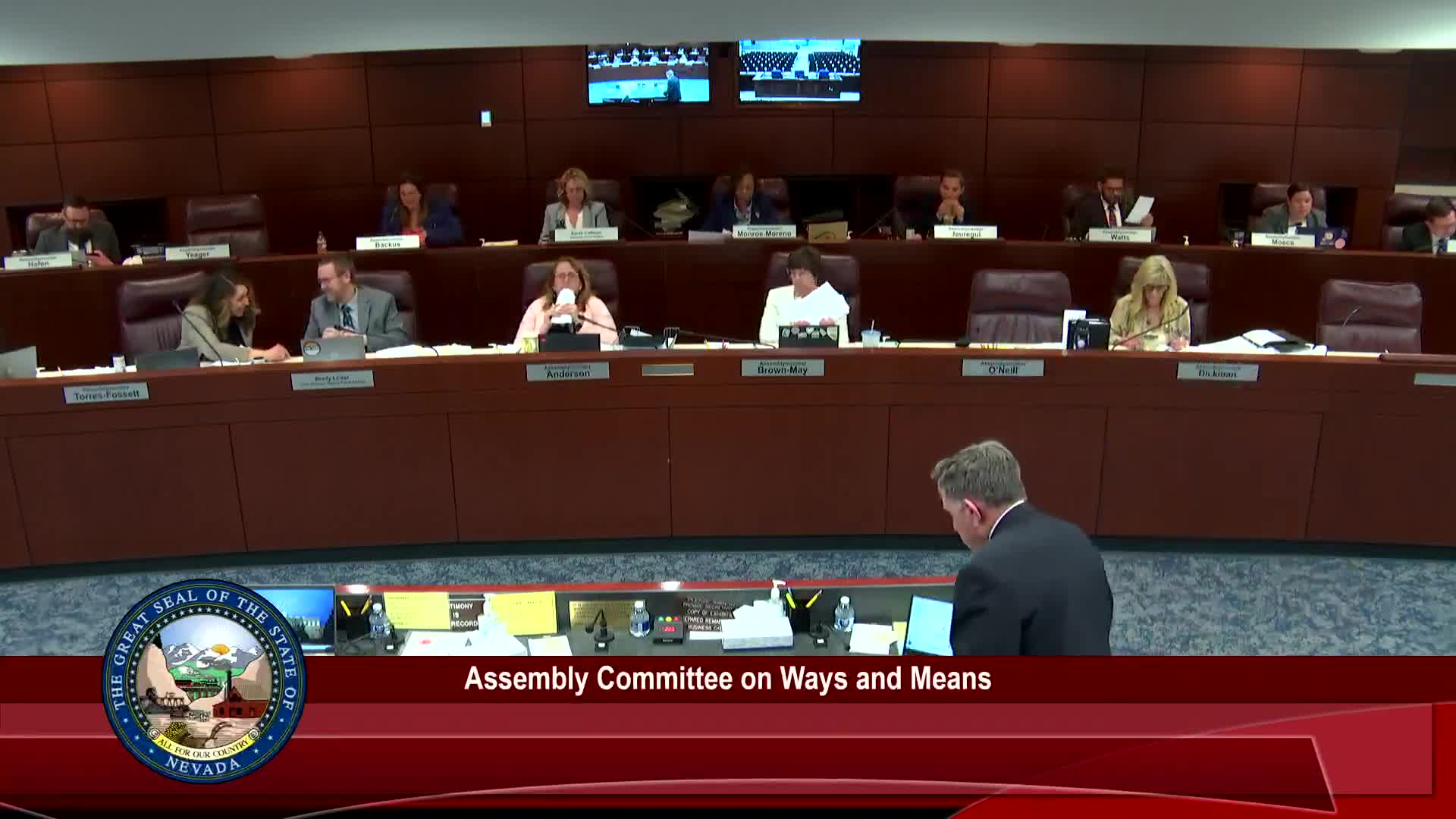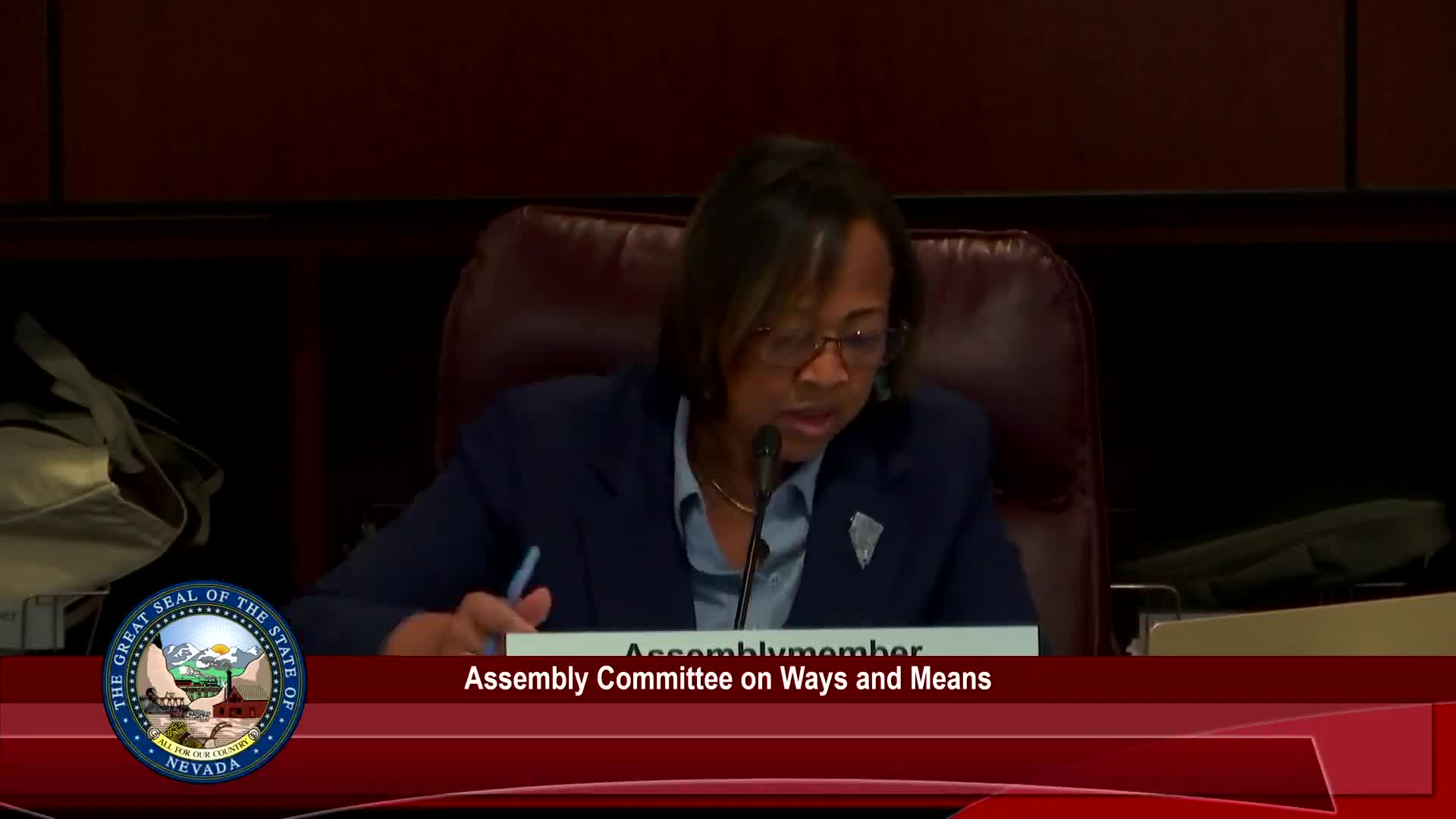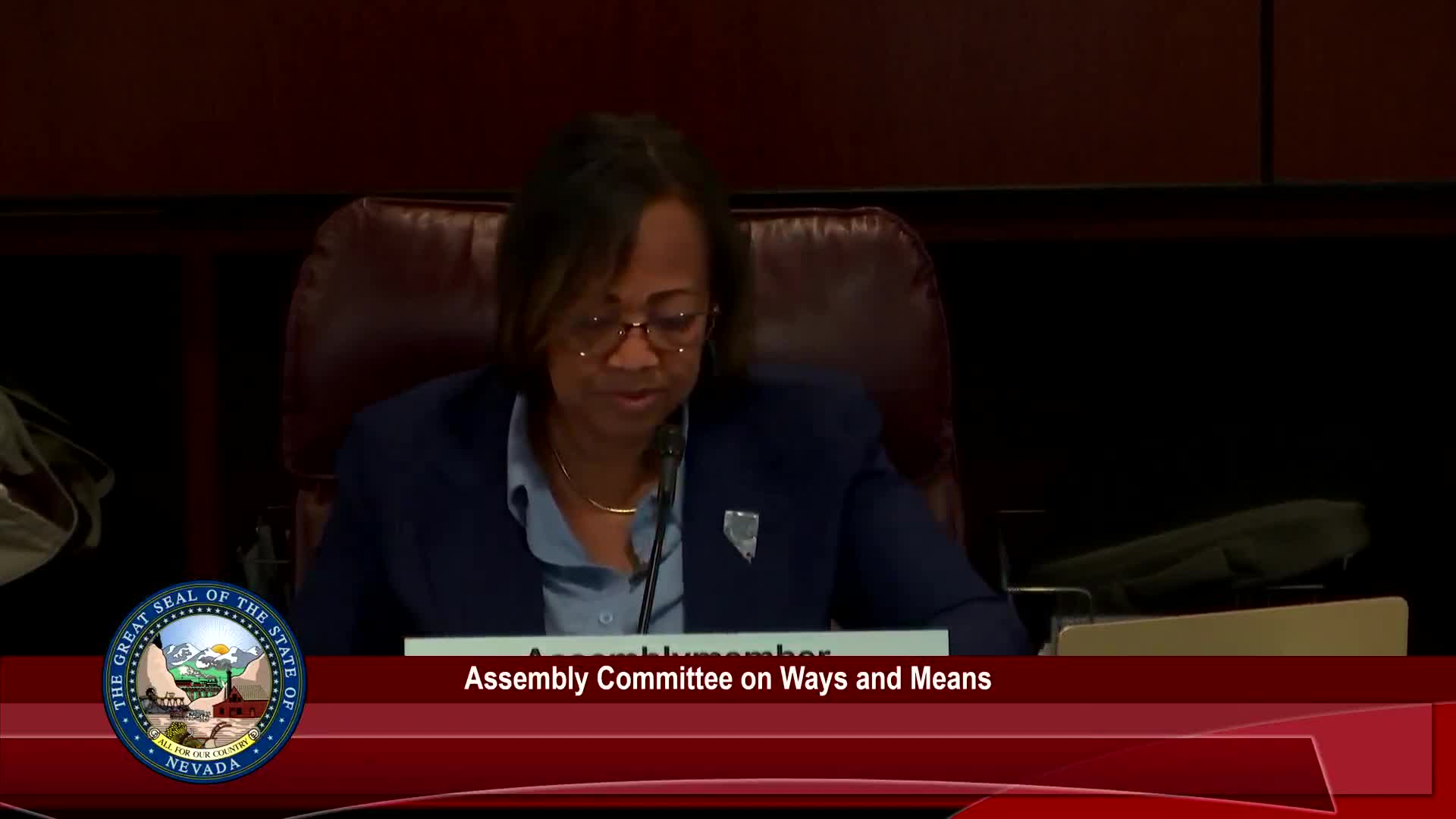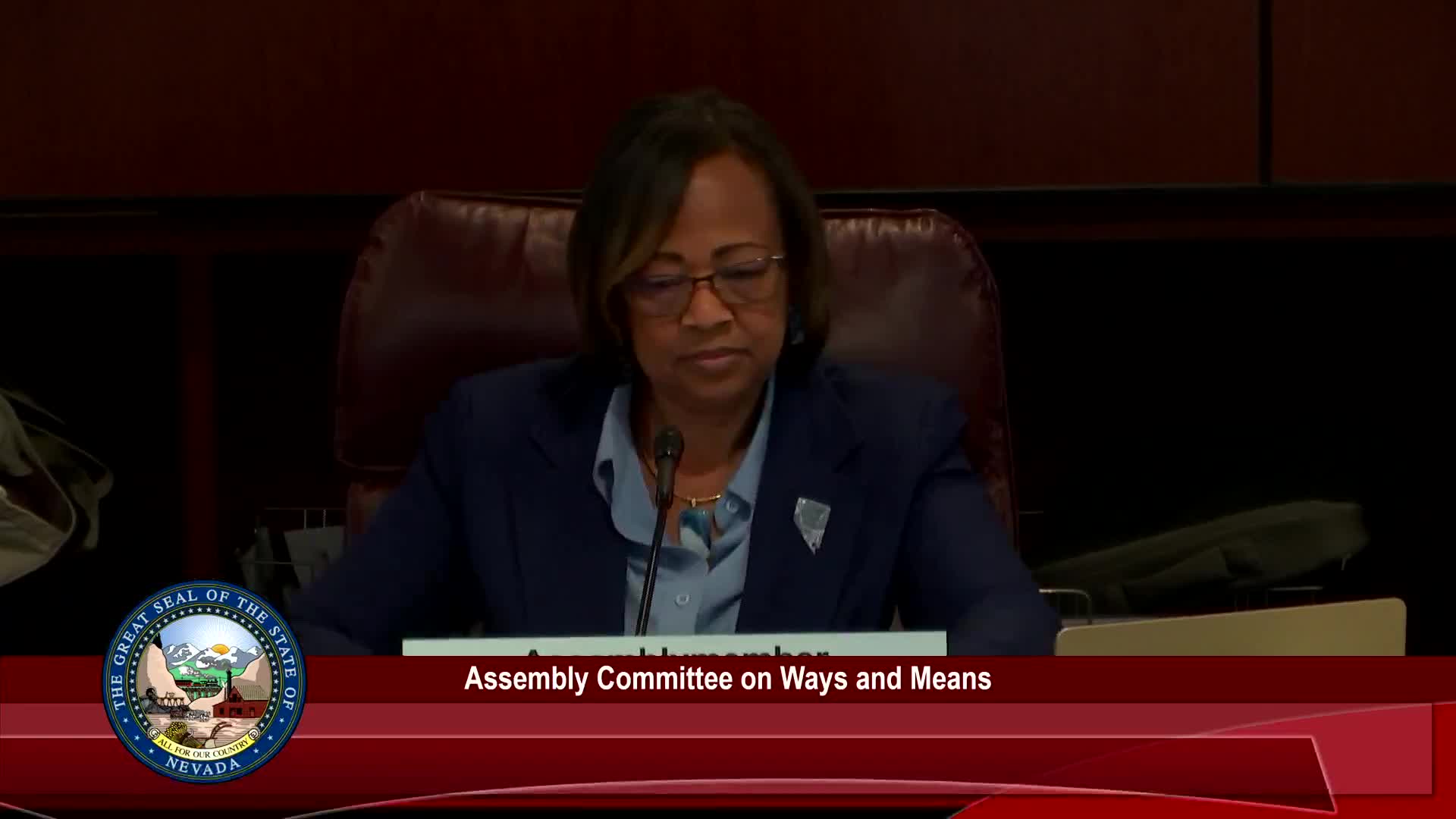Article not found
This article is no longer available. But don't worry—we've gathered other articles that discuss the same topic.

AB328 creates interim education subcommittee and Juneteenth commission to study African American educational/economic issues — hearing drew both support and out

AB274 would waive certain business fees for qualifying veterans; sponsors and veterans groups support amendments narrowing scope

AB463 narrows prior‑authorization rules after stakeholder negotiations; several state and local fiscal notes removed

AB331 requests state funding to expand the Youth Risk Behavior Survey statewide

AB284 seeks Medicaid reimbursement for implanted vagus‑nerve stimulation to treat drug‑resistant epilepsy

AB494 would codify federal student-protection laws into state statute and give NDE rulemaking authority if federal protections change

AB472 would add protections for J‑1 visa teachers; Department of Education removes fiscal note after sponsor deletes grant-match program

AB442 amended to promote advance payment and reporting for state grants; agencies say amendments remove fiscal notes

AB296 would allow DMV installment payments, authorize digital license plates and make mileage pilot permanent

AB251 would authorize mobile meat-packing trailers to serve rural Nevada; agriculture department ties fiscal impact to related budget item

AB243 would extend property-tax deduction for surviving spouses of service members killed in the line of duty

